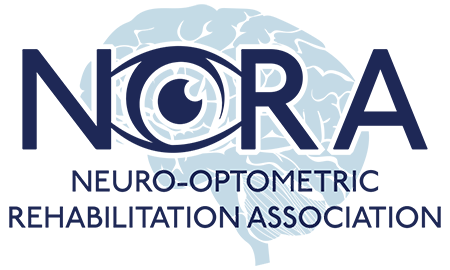NORA and PINK Concussions have developed a new educational resource, “Women and Concussions,” that provides some helpful information on why concussions might affect women differently than men. Learn more.
2024 Annual Conference Sponsors & Exhibitors
Neuro-Optometry, a Rewarding Specialty for Optometrists
Optometry, like many medical professions, is being reshaped by the specialization trend. Many optometrists, particularly those in private practice, have responded by developing specialties to address specific patient needs. NORA President Susan Daniel, OD is profiled in this piece on Specialized Optometry in the November issue of Vision Monday.
Neuro-Optometric Rehabilitation Association Presents Awards for Contributions to the Area of Neuro Optometric Rehabilitation
The Neuro-Optometric Rehabilitation AssociationTM, International (NORA) recognized the following individuals and association last week at NORA’s 28th Annual Conference in Scottsdale, AZ for their important contributions to NORA and the field of Neuro-Optometric Rehabilitation.
When to Refer to a Neuro-Optometrist
Many optometrists think of a referral to a neuro-optometrist as a last resort or something that is suitable only for life-threatening conditions such as a suspected brain tumor. The reality is that most optometrists have patients in their practice who could benefit from a neuro-optometry referral. These patients might be athletes who have had a concussion, adults who have experienced whiplash in a car accident, elderly people with balance issues, or seemingly healthy children who are struggling in school. Article by NORA Advisory Board member Tanya Polec, OD, FCOVD. Published September 2019 Modern Optometry.
Neuro-Optometric Rehabilitation Association and Vestibular Disorders Asociation Offer New Educational Resource on the Vestibular-Vision Connection
Vision plays a significant role in our ability to balance, orient ourselves in space, and process movement of things in our environment. The vestibular (inner ear balance) system and the visual system coordinate with each other through brain pathways in order to control the eyes’ ability to maintain a visual gaze on a single location. This connection, known as the vestibulo-ocular reflex, has a critical role in producing eye movements and stabilizing the image during head motion and helping us to maintain our balance.
